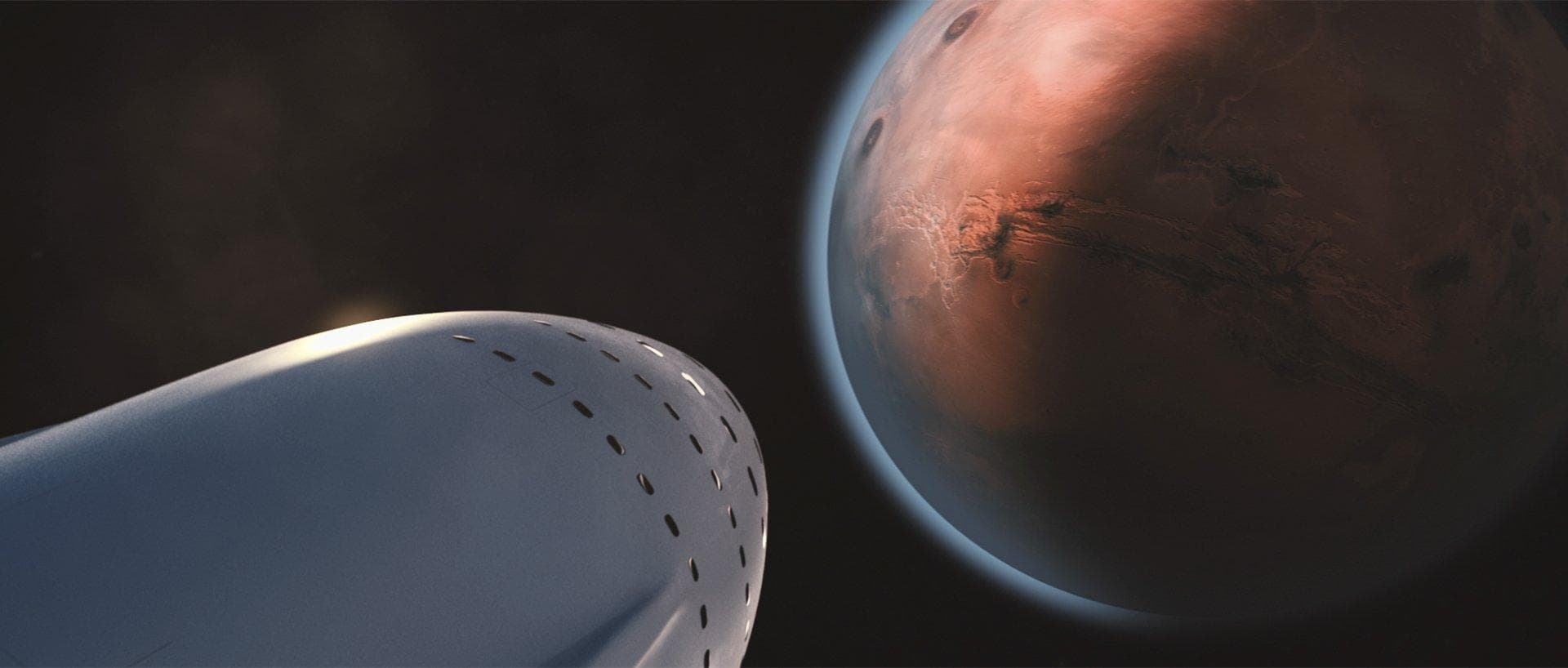A New Plan
They say everything's sweeter the second time around, and that seems to be the case for SpaceX's plans to colonize Mars. Last year, Musk unveiled his plans to colonize the Red Planet and make it fit for human habitation. Now, that version of the plan has been published and made available for free—with a few notable updates.
In the paper, the focus is on affordability, as that is the primary factor in making life on Mars a reality. As Musk notes, “You cannot create a self-sustaining civilization if the ticket price is $10 billion per person.” In order for it to be viable, Musk asserts that the cost should be about $200,000—equivalent to the median price of a house in the United States. In the paper, Musk outlines the steps he considers essential to ensuring this relative affordability.
But this is just the beginning. Musk posted a tweet today hinting that this version one is already being reviewed...and version 2 is on its way.
Mars V2 plan coming soon, which I think addresses the most fundamental flaw in V1: how to pay for development & operation of giant rockets https://t.co/yaITdVdpEc
— Elon Musk (@elonmusk) June 16, 2017
Moving Forward
According to Musk, the version one has one fundamental flaw, which is the cost of developing and operating giant rockets. While SpaceX has been specializing on reusable rockets, getting to Mars would still be costly due to the size of the rockets needed. According to V1 of the plan, getting to Mars depends on a reusable rocket-and-spaceship tandem, which Musk has called the Interplanetary Transport System (ITS). Reducing the costs to developing the ITS is crucial, especially since Musk himself has already put a cap on how much a trip to Mars should be.
Musk asserts that he envisions 1,000 or so ITS spaceships, each of which are carrying 100 or more people, leaving Earth orbit during "Mars windows," the point in time when Earth and Mars align favorably, which happens once every 26 months.
Outlining the importance of making this information freely available, New Space editor-in-chief Scott Hubbard asserts that "publishing this paper provides not only an opportunity for the spacefaring community to read the SpaceX vision in print with all the charts in context, but also serves as a valuable archival reference for future studies and planning."
"There is a huge amount of risk. It is going to cost a lot," Musk wrote. "There is a good chance we will not succeed, but we are going to do our best and try to make as much progress as possible." By giving everyone access to this information, our chances of success are greatly improved.
Share This Article
